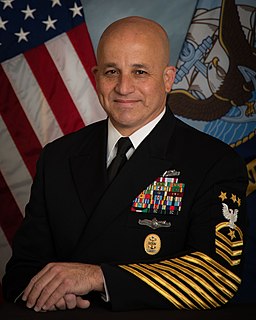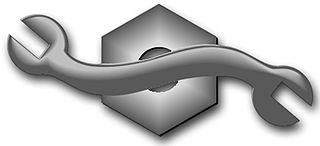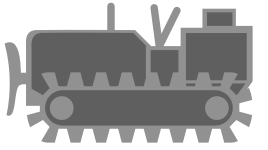
A non-commissioned officer (NCO) is a military officer who has not earned a commission. Non-commissioned officers usually obtain their position of authority by promotion through the enlisted ranks In contrast, commissioned officers usually enter directly from a military academy, Officer Candidate School (OCS), or Officer Training School (OTS) after receiving a post-secondary degree.

In a navy, a rate, rating or bluejacket is a junior enlisted member of that navy who is not a warrant officer or commissioned officer. Depending on the country and navy that uses it, the exact term and the range of ranks that it refers to may vary.
Senior chief petty officer is an enlisted rank in the navies of some countries.
Master chief petty officer (MCPO) is an enlisted rank in some navies. It is the ninth, enlisted rank in the United States Navy and United States Coast Guard, just above command senior chief petty officer (CMDCS). Master chief petty officers are addressed as "Master Chief " in colloquial contexts and they constitute the top 1.25% of the enlisted members of the maritime forces.

Command master chief petty officer (CMDCM) is an enlisted rating in the United States Navy and U.S. Coast Guard, as well as the Japan Maritime Self-Defense Force.

The Master Chief Petty Officer of the Navy is a unique non-commissioned rank and position of office of the United States Navy, which has with it the paygrade of E-9. The holder of this position is the most senior enlisted member of the U.S. Navy, equivalent to the Sergeant Major of the Army, Chief Master Sergeant of the Air Force, Sergeant Major of the Marine Corps, Master Chief Petty Officer of the Coast Guard, and Chief Master Sergeant of the Space Force. The current MCPON is Russell Smith.
A Petty Officer (PO) is a non-commissioned officer in many navies and is given the NATO rank denotion OR-5 or OR-6. In many nations, they are typically equal to a sergeant in comparison to other military branches. Often they may be superior to a seaman, generally they are lower ranks in a navy, and subordinate to a more senior non-commissioned officer, such as a Chief Petty Officer.

Command Senior Enlisted Leader Identification Badges are special United States Navy and United States Coast Guard badges which are issued to the most senior Chief Petty Officer or higher in a given U.S. Navy or U.S. Coast Guard command. The command may either be a shore or sea unit.

Construction electrician is a United States Navy occupational rating.

Construction mechanic is a United States Navy occupational rating.

Engineering aid is a United States Navy occupational rating.

Equipment operator is a United States Navy occupational rating.

Steelworker is a United States Navy occupational rating.

Utilitiesman is a United States Navy occupational rating.

Chief Petty Officer (CPO) is the seventh Enlisted rank in the United States Navy and U.S. Coast Guard, just above petty officer first class and below senior chief petty officer. The term “rate” is used to identify enlisted job specialties. In this way, enlisted personnel are segregated into three segments containing different enlisted ranks. Furthermore, rates are broken down into three levels: non-rates members without a designated occupation. Advancement to E-4 and above is dependant on graduating from a specialty school that define what the enlisted is rated for. Petty officers and chief petty officers are part of the rated force and considered extremely knowledgeable on their particular rate. Examples include Culinary Services Chief and Aviation Maintenance Chief. The Chief Petty Officer is the rank . Gunners Mate is a rating. E7 is a pay grade. The term rating is used to identify the career field of a Chief Petty Officer. For example the rate of Master-at-Arms in the rank of Chief Petty Officer would be spoken as Master-at-Arms, Chief Petty Officer or Chief Master-at-Arms. Additionally it would be officially written MAC, USN/R. The grade of Chief Petty Officer was established on 1 April 1893 for the United States Navy. The United States Congress first authorized the Coast Guard to use the promotion to Chief Petty Officer on 18 May 1920. Chief petty officer is also the final cadet grade in the United States Naval Sea Cadet Corps.












